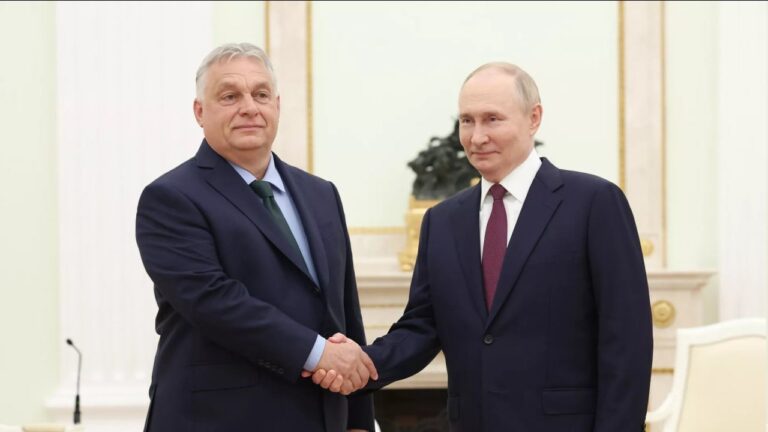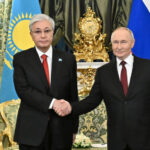Why now — Strategic timing and immediate context
Orbán’s 2025 Moscow visit is less a symbolic gesture than a calculated strategic move — aimed at securing Hungary’s energy future ahead of elections, exploiting a narrow political-economic window created by temporary U.S. sanctions waivers, and positioning Hungary as a potential European bridge to Moscow.
Energy security under pressure
- The main stated purpose of the visit is energy: Orbán goes to Moscow to secure “cheap Russian oil and gas” for Hungary’s winter and the next year
- Hungary remains one of the few EU states still importing significant Russian fossil fuels.
- Recently, Budapest obtained from Washington a one-year exemption from U.S. sanctions on Russian oil and gas — providing a narrow legal/financial window
- Thus, with the sanctions waiver in hand, Orbán is pressing to lock in long-term supply deals before uncertainties (winter demand, global energy price swings, possible new sanctions) mount.
“Peace-diplomacy” window — Ukraine war recalibration & U.S.–Russia summit dynamics
- Orbán’s visit comes shortly after his meeting with Donald Trump in Washington, where issues included possible US–Russia rapprochement and energy cooperation
- Russia appears to be using this moment to test whether Central European actors can signal “neutrality” or “brokerage potential.” Orbán may present the trip as part of a broader peace/diplomacy push, possibly pushing for some relaunch of a “peace summit” framework
- The timing — years into the war, with European energy fatigue, winter approaching — offers a plausible rationale for Moscow to renew overtures to friendly EU members.
Domestic political and economic pressures in Hungary
- With Hungarian national politics gearing toward the parliamentary elections in April 2026, energy costs (fuel, heating), inflation, public discontent, and economic vulnerabilities are likely to be key issues.
- Securing Russian energy on favorable terms helps Orbán’s government promise stable fuel/energy prices, buffering against economic discontent — which politically benefits him now.
- A successful Moscow deal can strengthen his narrative of independence from Brussels sanctions, projecting a “Hungary first” posture.
What’s different this time — departure from previous visits or continuities
| Aspect | How 2025 visit differs / stands out |
| Legal/financial window | The new U.S. sanctions exemption gives Orbán a rare opportunity to legally deepen energy ties, which was harder under full sanction regimes. |
| Large, broad delegation & agenda scope | According to press sources, Orbán travels with a substantially large delegation (incl. foreign minister, transport minister, national-security adviser), suggesting the talks will go beyond energy — covering pipelines, nuclear fuel, possibly regional infrastructure/investments |
| Interaction with U.S.–Russia dynamics | Given recent US–Hungary talks and ideas of a US–Russia summit (though canceled) — this Moscow trip seems part of a broader triangulation, not just bilateral Hungary–Russia energy deals. |
| Explicit market for nuclear and energy diversification | Media note that beyond gas/oil, the agenda may include nuclear-related cooperation or unknown energy-sector deals, potentially giving Russia economic footholds via energy infrastructure. |
In contrast to previous visits (e.g., 2024), which were more symbolic or framed under “peace diplomacy,” this trip appears driven by tangible energy-economic & geopolitical calculations, with less emphasis on public EU-level mediation pretenses.
Likely motivations & interest alignment — from both Budapest and Moscow perspectives
For Hungary / Orbán
- Secure stable energy supply at favorable prices before 2026 elections — a tangible domestic win.
- Maintain sovereignty narrative: defy EU pressure, show Brussels can’t dictate energy policy.
- Use Russian leverage to negotiate better deals with Western partners, or even extract concessions (trade, investments, nuclear deals).
- Position Hungary as a potential broker (or “bridge”) between East and West — possibly earning more geopolitical relevance, and possibly economic benefits (e.g., pipeline deals, transit, energy transport).
For Russia / Kremlin
- Reinforce that even amid war, Moscow retains leverage in EU: via friendly leaders, energy dependence, and bilateral deals.
- Create cracks in EU and NATO unity — if Hungary deepens ties, it undermines bloc’s cohesion and sanctions regime.
- Secure a loyal energy client with long-term import deals — ensuring foreign currency flows and political insurance in case EU pressure rises.
- Use Hungarian access to Western-oriented partners (U.S., EU) to potentially signal or broker softer stances toward Moscow.
Risks and threats — especially from an intelligence/policy-analysis perspective
- Energy dependence as leverage risk
- Deepening reliance on Russian oil/gas gives Moscow effective leverage over Budapest: price, supply cuts, or political pressure (e.g., over Ukraine stance).
- In a scenario of renewed pressure or sanctions, Hungary might become a security vulnerability within the EU — potentially even a back-channel for Russian influence.
- Division within EU/NATO — weakening collective response to Russia
- If Hungary strengthens its bilateral link, other EU/NATO states may face pressure to accommodate or at least tolerate Hungarian–Russian ties — fracturing unified Western policy on Russia.
- Risk of normative erosion: other Central/Eastern European states may follow suit, citing Hungary’s example.
- Energy deals as cover for deeper security / intelligence cooperation
- Under the guise of energy/nuclear cooperation, Moscow could push for deals involving dual-use technology, pipelines, energy infrastructure — providing potential backdoor for intelligence, logistics, or military-industrial influence.
- The presence of a large delegation suggests the talks may cover more than just energy — nuclear fuel, future investments, transport infrastructure can all have strategic dual-use value.
- Domestic legitimacy vs. dependency fragility
- While a deal may yield short-term electoral advantage, over time cost-of-dependency (political, economic, reputational) may backfire — especially if Russia uses energy ties for coercive diplomacy.
- In a crisis (e.g., price shock, new war escalation), Hungary’s dependence may translate to domestic instability or pressure on the government — risky for both governance and intelligence community watching.
- Opportunities for Kremlin disinformation, political interference ahead of 2026 elections
- With stronger Hungary–Russia ties, Moscow may have easier channels to influence Hungarian media, political actors, or use energy-related economic leverage to fund sympathetic elites.
- The timing ahead of elections means heightened vulnerability: economic incentives, public dissatisfaction, or “soft-power” offers might be deployed to tilt electoral outcomes.
. Will Russia be involved in Hungarian elections (April 2026) — Scenarios & Likelihood
Plausible scenarios and their probabilities (high/medium/low) — from a strategic-intelligence angle:
| Scenario | Probability | Rationale / Triggers |
| A. Passive influence via energy leverage and political capital — Hungary remains dependent; Russia quietly supports friendly incumbents through economic ties, maybe informal networks. | High–Medium | Energy deals give Russia long-term leverage. No need for overt interference; influence can be soft, structural. |
| B. Active interference: funding, media, covert support to friendly political actors / parties | Medium | Russian interest to protect a friendly regime inside EU/NATO is significant. With more legal leeway and open cooperation, Moscow might invest in influence operations before 2026. |
| C. Hungary becomes a hub for Russian strategic interests — dual-use infrastructure, energy, intelligence — beyond elections | Medium–Low | Depends on success of negotiations and willingness of Hungarian elites to commit long-term. Requires deeper structural integration. |
| D. Blowback / decoupling: Hungary moves back toward diversified supply (e.g. LNG, nuclear) post-deal → reduces Russian leverage | Low–Medium | Only likely if EU/US offer competitive alternatives, or Hungarian public pushes back on overt Russian dependency. |
The most likely path through 2026 is Scenario A — structural, passive influence. But the combination of energy dependence, political need, and Kremlin incentives makes Scenario B plausible if Moscow chooses to lean in.
scow, the visit represents an investment: a friendly EU-state committed to Russian energy, with potential further openings into nuclear, transport and diplomatic arenas.
In short: this is a turning point in Hungary–Russia relations. It may not — yet — lead to overt Kremlin meddling in Hungarian domestic politics, but it significantly raises the baseline of dependence, influence and strategic leverage. From an intelligence and policy-analysis standpoint, Hungary is moving from cautious divergence toward structural entanglement.
Risks for the United States and the Trump Administration
Strategic Risks: Undermining U.S. Leverage in Europe
Kremlin gains a “friendly bridgehead” inside EU and NATO
Orbán’s Moscow trip signals that at least one NATO/EU head of government is willing to engage Putin directly, even as the Ukraine war continues.
Risk:
- Russia gains a sanction-proof political partner inside Western institutions.
- Any U.S. effort to strengthen European unity on sanctions, Ukraine, INF-related talks, defense spending, or China policy will face institutional sabotage from Budapest.
U.S. sanctions policy risk
Washington granted Hungary a one-year energy waiver to import Russian oil/gas. If Orbán uses that window to deepen energy dependence, the U.S. will be blamed for enabling a renewed Russian foothold.
Risk for Trump administration:
- Congressional criticism that the administration “opened the door” to Russian influence.
- Loss of support from bipartisan Russia-hawks.
Erosion of U.S. credibility with allies
Orbán routinely claims to act “with Trump’s blessing” or “aligned with Washington.”
If his Moscow diplomacy spirals into anti-EU destabilization or Kremlin narratives, U.S. allies will assume Washington tacitly supports it.
Risk:
- Europeans interpret Hungary’s Moscow outreach as a sign Trump is preparing a softer policy on Russia.
- Germany, Poland, France hedge against U.S. reliability; NATO cohesion weakens.
Political and Optics Risks for the Trump Administration
“Pro-Russia optics” ahead of U.S. domestic political cycle
Orbán is one of the few Western leaders openly sympathetic to Trump and openly anti-Brussels. His appearance with Putin can be spun as:
- a Trump ally normalizing Putin,
- a backchannel,
- or foreign leaders showing preference for Russian dialogue over U.S.–EU alignment.
Risk: Media narrative in the U.S. that “Trump’s allies are cozying up to Putin.”
Congressional backlash
Even Republican hawks (Lindsey Graham, Rubio, Cotton) view Orbán’s Russia policy with suspicion.
Risk:
- Hearings and political pressure on the administration to distance itself from Orbán.
- Oversight investigations into the energy waiver.
Weaponization by U.S. political opponents
Democrats will frame the visit as proof that:
- Trump-friendly foreign leaders support Moscow,
- U.S. global posture is drifting toward appeasement,
- Washington is losing control of Russia policy.
This line of attack will intensify during election season (2026 midterm cycle preparation).
Intelligence Risks: Operational and Counterintelligence Dimensions
Russian access to sensitive Western political information
Orbán’s government is deeply penetrated by:
- Russian intelligence networks,
- energy-sector intermediaries,
- pro-Kremlin influence channels.
In Moscow, Hungarian delegations (often including officials with compromised profiles) may:
- share intelligence about EU internal debates,
- share insights from meetings with Trump officials,
- discuss U.S. policy signals,
- leak energy or sanctions details.
Risk: Kremlin gains actionable intelligence on U.S. negotiation positions.
Moscow exploits Hungary as an “intelligence laundromat”
Hungary can act as a safe NATO/EU node where Russia:
- launders influence operations,
- places cyber infrastructure,
- runs political funding through Budapest-based banks or think tanks.
Risk: Kremlin uses Hungary to bypass U.S. and EU counterintelligence screens.
Hungary becomes a conduit for Russian interference in Central Europe — and possibly in the U.S.
Orbán’s intelligence services have a history of tolerating Russian operations. Moscow may use Hungarian soil for:
- financing pro-Kremlin narratives in Europe,
- cyber hubs for disinformation,
- smuggling diplomatic materials,
- supporting Hungarian extreme-right parties with transnational links.
Some of those actors have direct U.S. digital and financial footprints.
Ukraine War and European Security Risks
Orbán may push a Kremlin-friendly “peace plan”
Orbán could publicly adopt or relay Russian positions:
- permanent territorial concessions,
- “freeze the conflict,”
- sanctions relief,
- EU pressure on Kyiv to negotiate.
Risk for Trump administration:
- The Kremlin presents Hungary’s position as evidence that “the West is split.”
- It complicates any U.S. effort to negotiate from a position of strength.
Undermining NATO readiness
Hungary has already obstructed:
- Swedish accession,
- Ukraine–NATO Council meetings,
- defense budgets.
After a Moscow visit, Budapest may:
- block new NATO initiatives on Russia,
- disrupt joint deterrence planning,
- veto sensitive intelligence resolutions.
This hands Russia strategic time and space for force regeneration.
Election-Related Risks — U.S. and Hungarian Elections
Hungary’s April 2026 elections: Russian advantage
Moscow has a massive incentive to keep Orbán in power because Hungary is its only EU veto point.
Risk: Russia channels covert support to Hungarian pro-government media, security apparatus, and political financing — and U.S. intelligence may be blamed for not anticipating or countering it.
Spillover risk to U.S. information ecosystem
Hungarian pro-government media (TV2, Origo, Mandiner, etc.) amplifies Kremlin narratives. Those narratives feed into the U.S. right-wing digital ecosystem through:
- online influencers,
- think tanks,
- diaspora networks,
- political surrogates.
This can indirectly influence U.S. public opinion on Ukraine, NATO, sanctions, China, and Russia.
6. Highest-Priority Risks
For U.S. strategic posture:
- Accelerated fragmentation of the EU and NATO.
- Loss of sanctions unity; Russia gets a reliable spoiler inside Western structures.
For the Trump administration politically:
- Optics of “Trump’s ally shaking hands with Putin,” exploited by U.S. domestic opponents.
- Congressional backlash claiming leniency toward Russia.
For intelligence and security:
- Hungary becomes a host platform for Russian influence operations, cyber assets, and diplomatic laundering.
- Kremlin gains intelligence about U.S. policy discussions via Hungarian channels.
For Ukraine war policy:
- Orbán may promote a Kremlin-aligned “peace plan,” weakening the Western negotiation position.
Red-Flag Indicators to Monitor (Intelligence Priority)
- Unusual energy contract terms (indexed prices far below market → political allegiance).
- Expansion of Russian presence in Hungary (Rosatom, banks, embassies, trade offices).
- Media convergence between Hungarian and Russian propaganda narratives.
- Hungarian vetoes in NATO/EU following the Moscow visit.
- Backchannel meetings between Hungarian advisers and Russian intelligence-linked individuals.
- Hungary blocking Ukraine-related resolutions or demanding sanctions relief.
- U.S. political influencers amplifying Hungarian pro-Kremlin narratives.
Russian financial flows into Fidesz-adjacent foundations or think-tanks before April 2026 elections.
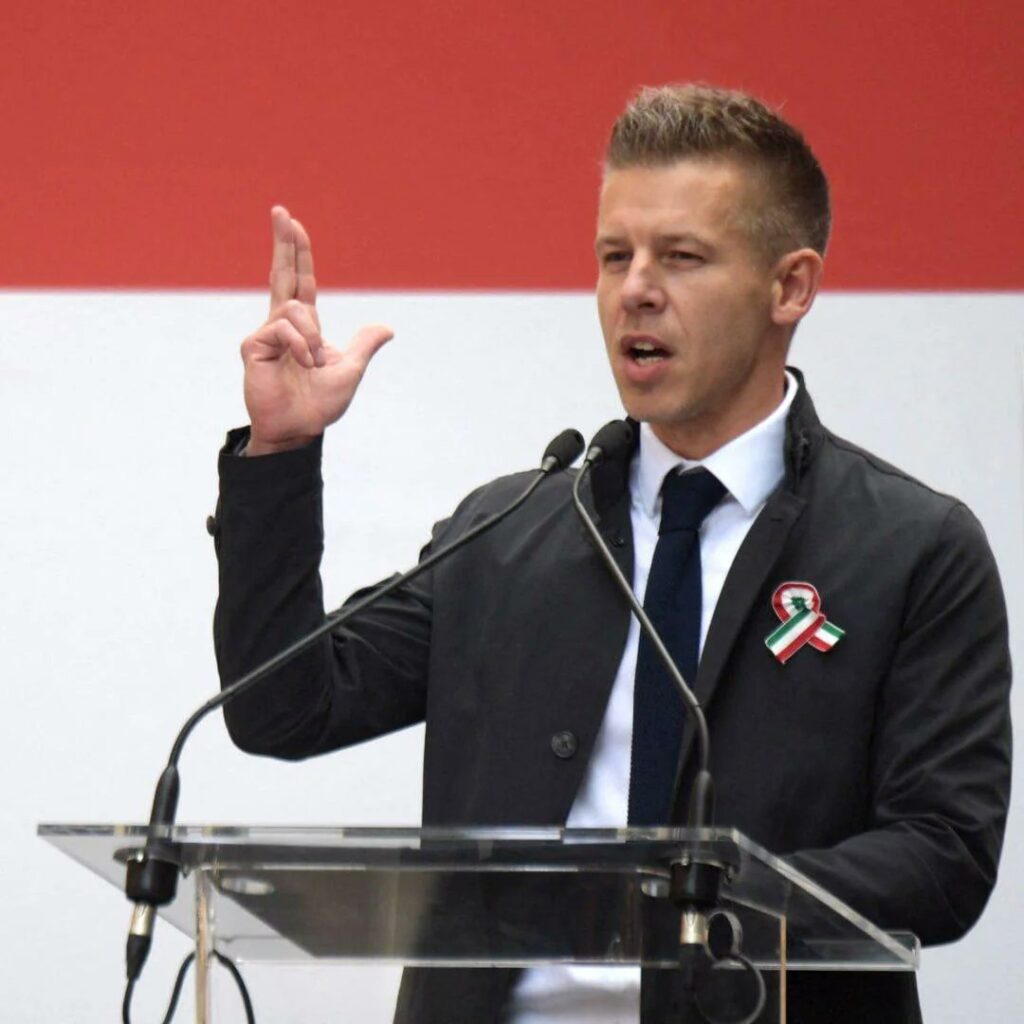
More on this story: The Kremlin’s Battle for Budapest: Russia’s Hybrid War to Keep Orbán in Power
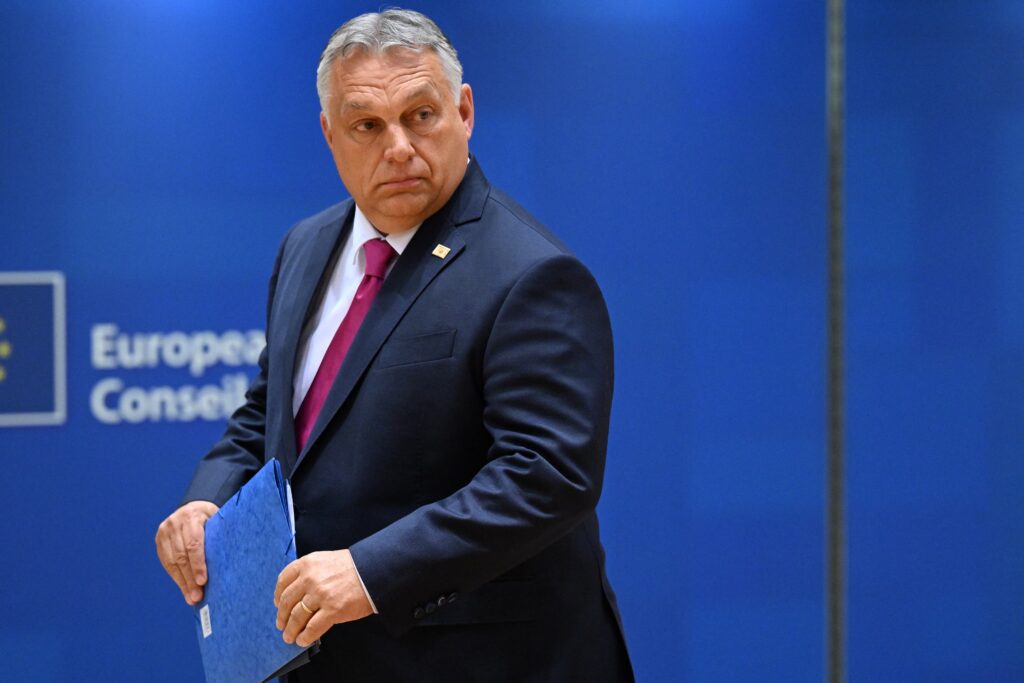
More on this story: Hungary’s Espionage Against EU Institutions:
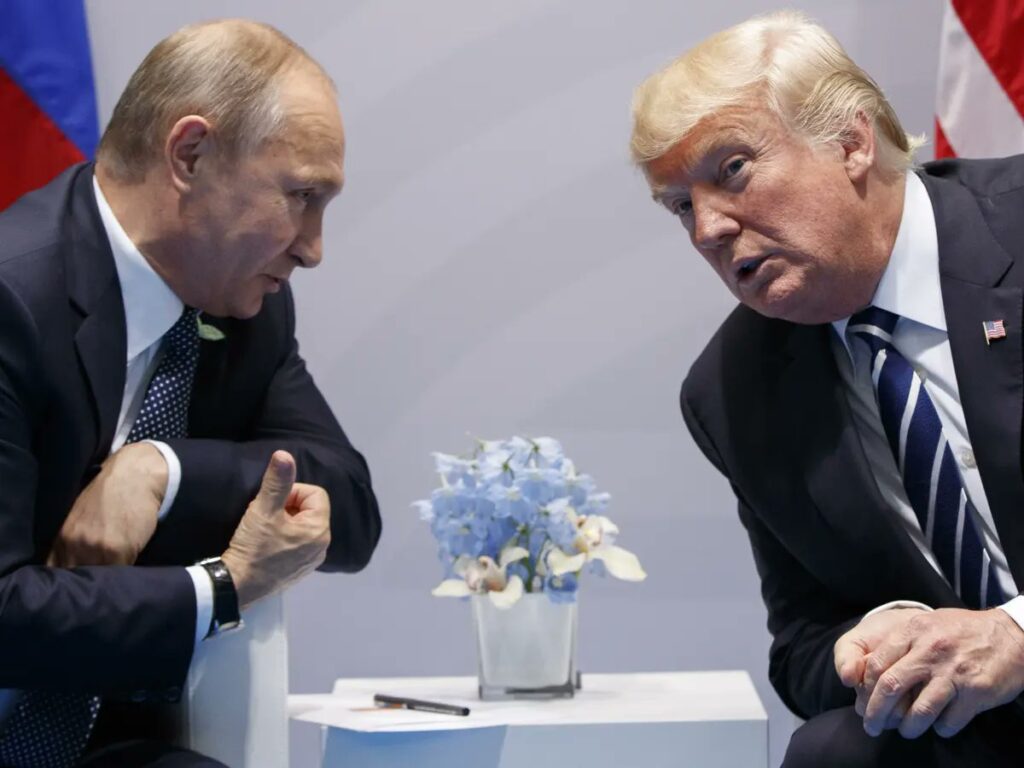
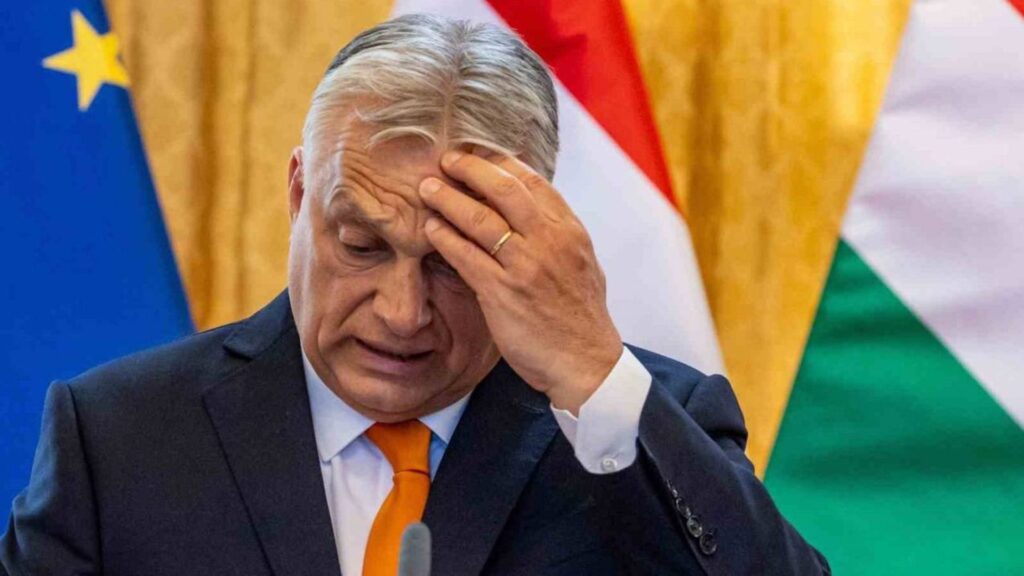
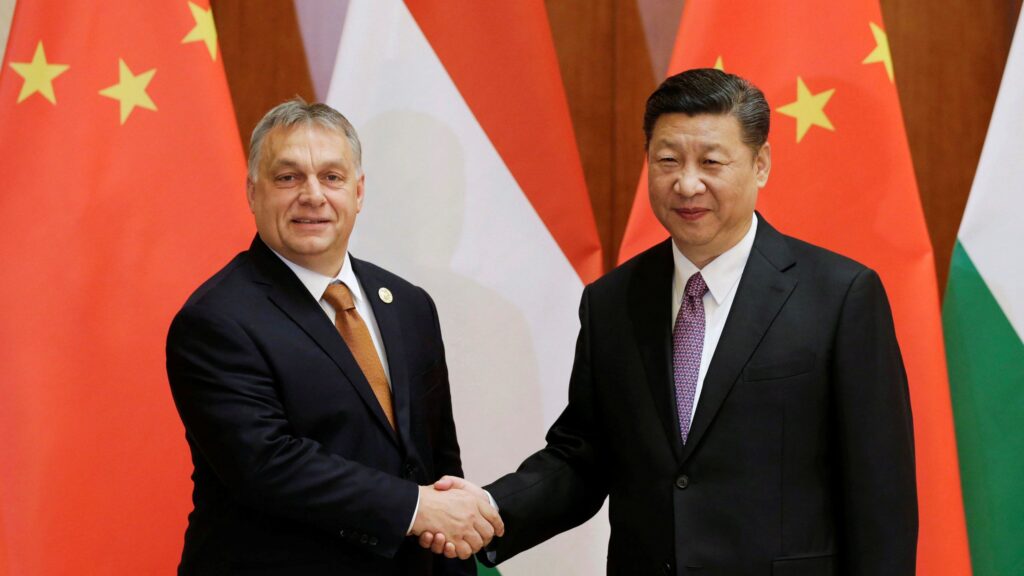
More on this story: Hungary plays as China’s bat to kick the US out of the EU economy

More on this story: Hungary: Trojan Horse in Russia’s Proxy War Against Europe
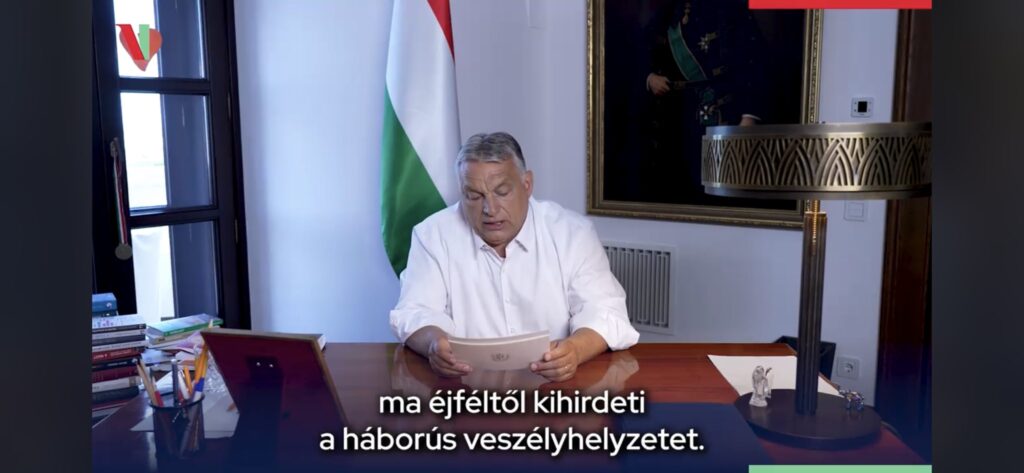
More on this story: Hungary’s Balancing Act: Strategic Risks of Budapest’s Covert Ties with Russia


